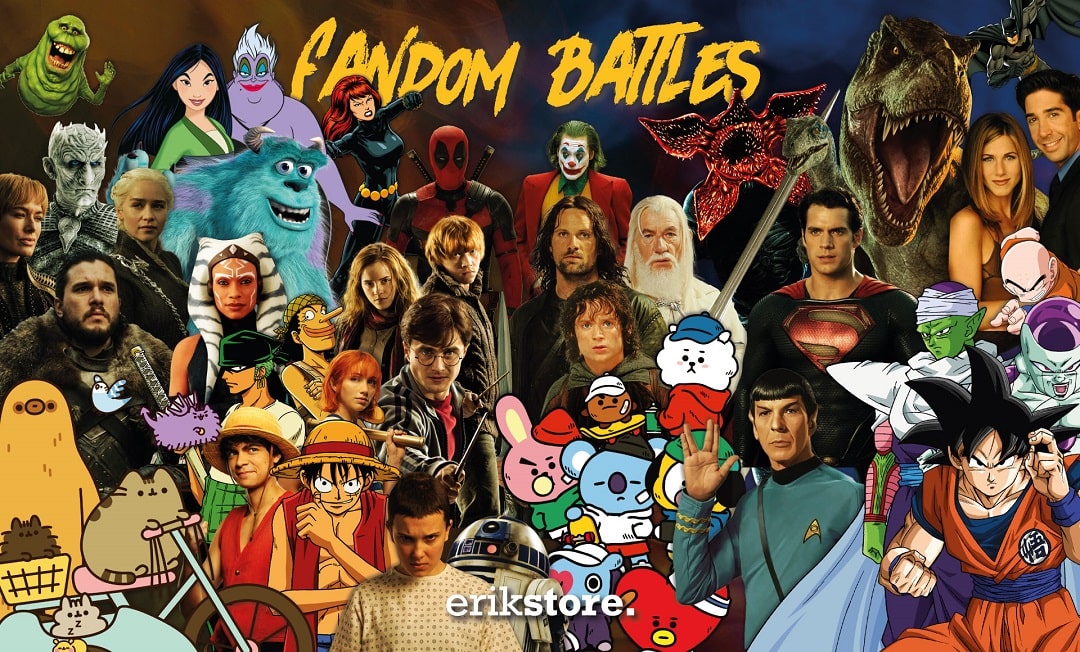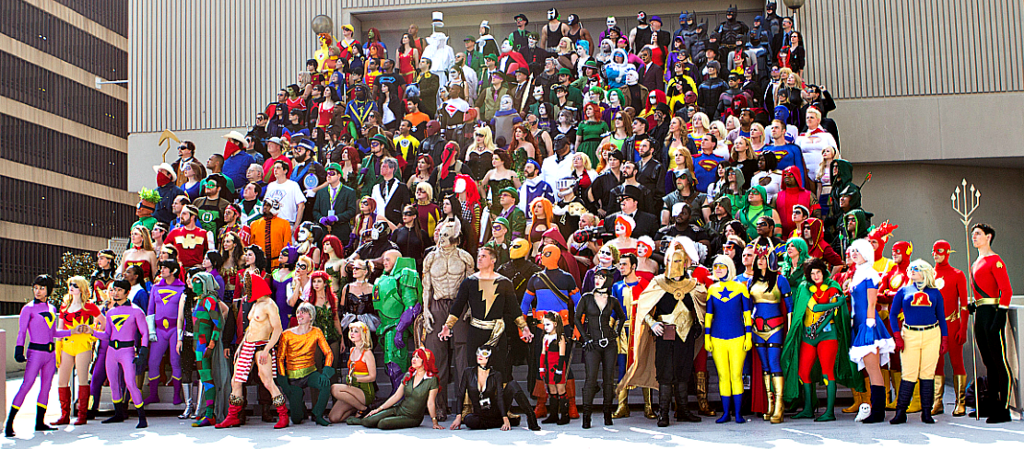The Role of Fandoms: How Fan Communities Are Reshaping Entertainment
In the world of entertainment, fans have always played a significant role, but in recent years, fan communities—also known as fandoms—have become an undeniable force in reshaping how we experience and consume media. From movies and TV shows to video games and music, fandoms are no longer just groups of passionate viewers or listeners; they have become influential players in the entertainment industry. Let’s dive into how these fan communities are making waves and influencing the entertainment landscape.

The Power of Fan Engagement
Fans as Active Participants
In the past, fans were mainly passive consumers of entertainment—watching movies, reading books, or listening to music. Today, however, fandoms are much more interactive and involved. Social media platforms like Twitter, Reddit, Instagram, and TikTok have given fans direct access to creators, actors, and other fans, allowing them to engage in conversations and express their thoughts and ideas.
This engagement creates a sense of community and belonging. Fans don’t just watch a show; they discuss plot points, analyze characters, and even create fan art, fan fiction, or memes. In essence, they become co-creators in the entertainment experience. This deeper level of involvement not only fuels fandoms’ passion but also shapes the content they consume.
Fan-Driven Content Creation
The Rise of User-Generated Media
One of the most significant ways fandoms are reshaping entertainment is through user-generated content. Fans now have the tools to create their own content based on the media they love, from YouTube videos and podcasts to elaborate fan fiction and artwork. Platforms like Tumblr, Wattpad, and Archive of Our Own (AO3) have allowed these creations to flourish, giving rise to new voices and perspectives that might not have otherwise been represented.
For example, fan fiction—stories written by fans using established characters or universes—has become a major cultural phenomenon. Many fan fiction writers start with their favorite shows, movies, or books, and over time, their work has gained legitimacy, with some stories even being adapted into mainstream media (e.g., Fifty Shades of Grey started as Twilight fan fiction). This shift highlights how fandoms have empowered individuals to contribute to the broader cultural conversation.
Fandoms as Marketing Powerhouses
Fans as Free Marketers
Fandoms have become a crucial element of marketing strategies for entertainment companies. Word-of-mouth promotion within these fan communities can make or break a show, movie, or product. The success of a film or TV series often depends on the enthusiasm and support of its fan base. A passionate fandom can create buzz around a release long before it hits theaters or streaming platforms.
Fans not only promote content by discussing it online but also create fan-made promotional materials like posters, trailers, and even merchandise. These grassroots campaigns are incredibly effective because they come from a place of genuine love and interest in the material. Studios and networks recognize this power, and many now encourage fan engagement through official social media pages, fan events, and exclusive behind-the-scenes content.
The Impact of Fandoms on Representation
Pushing for More Diversity and Inclusivity
Fandoms have also been instrumental in advocating for better representation in entertainment. Fans, particularly those from marginalized communities, have used their platforms to demand more diverse and inclusive storytelling. They have voiced their desire for racial, gender, sexual orientation, and disability representation in film, TV, and video games. This growing demand for inclusivity has forced the entertainment industry to rethink how it portrays characters and narratives.
For example, fans have led campaigns for more LGBTQ+ representation, better racial diversity in major franchises, and the inclusion of disabilities in characters. These grassroots efforts have sparked wider conversations within the industry, pushing for change that reflects the diversity of real-life audiences. The success of characters like Captain Marvel and Black Panther, along with the growing acceptance of LGBTQ+ characters in mainstream media, shows how fandoms have influenced the direction of storytelling.
Fan-Driven Events and Conventions
The Rise of Fan-Conventions
Another way fandoms have reshaped entertainment is through fan conventions. These events, like Comic-Con, PAX, and Dragon Con, have grown into massive cultural gatherings that celebrate fan culture and bring together creators, actors, and fans. These conventions allow fans to interact with their favorite stars, participate in panel discussions, and immerse themselves in the worlds they love.
The impact of these events goes far beyond just a fun weekend; they also play a significant role in the promotion of upcoming releases. Studios and publishers often use conventions as platforms to unveil trailers, announce new projects, and engage with fans in a direct and interactive way. The energy and enthusiasm found at these events can be contagious, turning minor films or shows into massive hits.
Fandoms and Social Change
Fans as Agents of Change
Fandoms aren’t just about entertainment; they have also been at the forefront of social change. In the age of digital activism, fans have used their collective voices to advocate for important causes. Whether it’s raising awareness about climate change, supporting political movements, or championing charity events, fan communities often rally behind causes that matter to them.
For example, the Harry Potter fandom has consistently used its platform to promote literacy and education through initiatives like The Harry Potter Alliance, while fans of Star Wars have raised funds for various charitable organizations. Through online petitions, crowdfunding campaigns, and coordinated efforts, fans have proven that they can use their influence to make a positive difference.

Fandoms and the Future of Entertainment
A Two-Way Relationship
As fandoms continue to grow and evolve, the relationship between fans and creators will likely become even more collaborative. Entertainment companies now recognize that fans are not just passive consumers—they are active participants in the creation and success of media. This two-way relationship is pushing the industry toward more interactive and personalized experiences.
In the future, we may see more opportunities for fans to engage directly with the development of stories and characters, from crowdsourcing ideas to voting on plot twists or even choosing which characters get more screen time. Live-streamed events, interactive TV shows, and fan-driven storylines could all be part of this new wave of entertainment.
Final Thoughts
Fandoms have proven that their influence on entertainment is more than just a passing trend. These communities are reshaping how content is created, marketed, and consumed. By giving fans a voice and a platform, the entertainment industry is evolving into a more dynamic and inclusive space. As fandoms continue to grow, their role in shaping the future of entertainment will only become more important, and they will remain a driving force in creating content that resonates with audiences on a deeper level. So whether you’re a part of a fandom or simply enjoy the products they support, it’s clear that these communities are here to stay.












